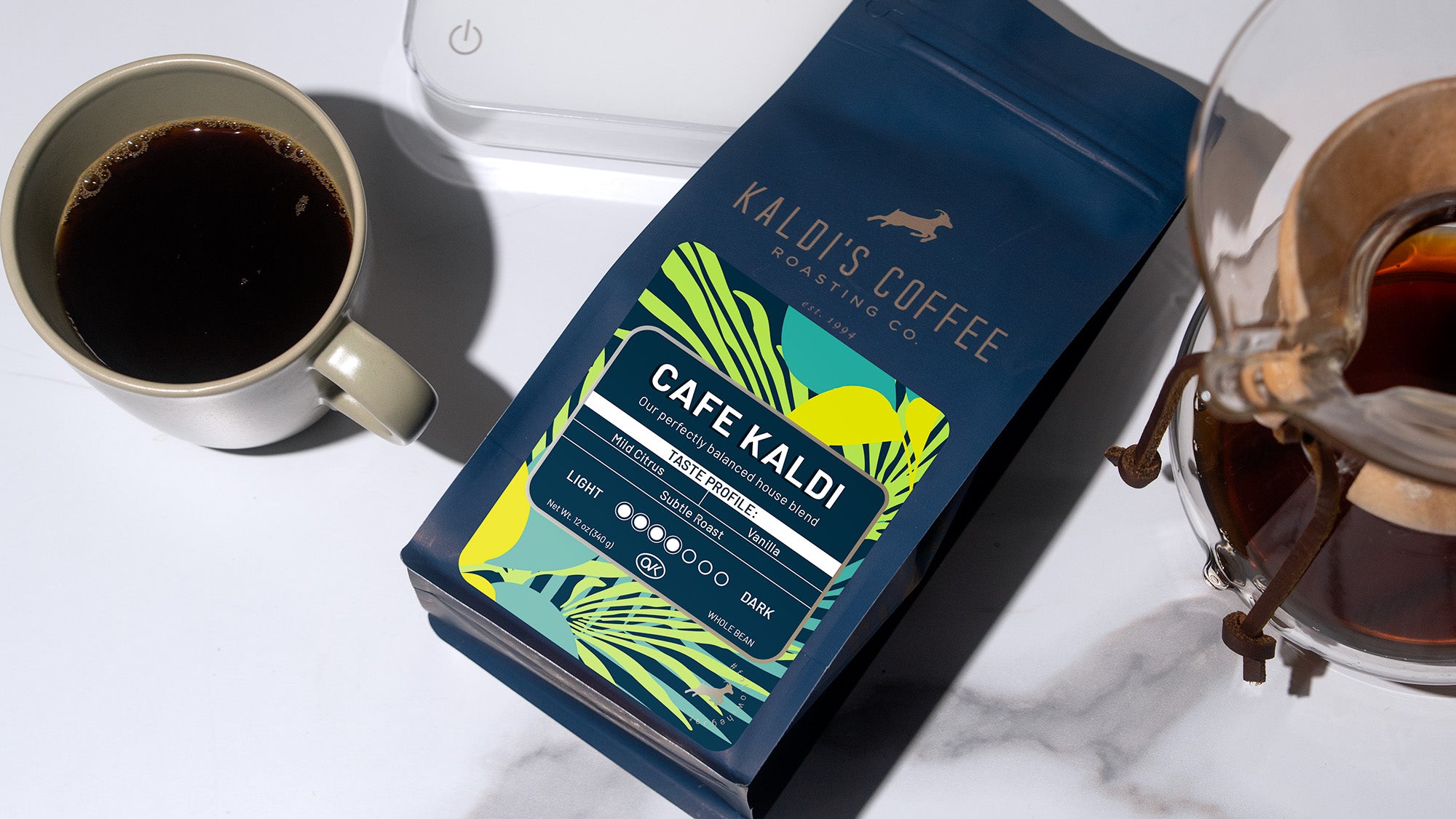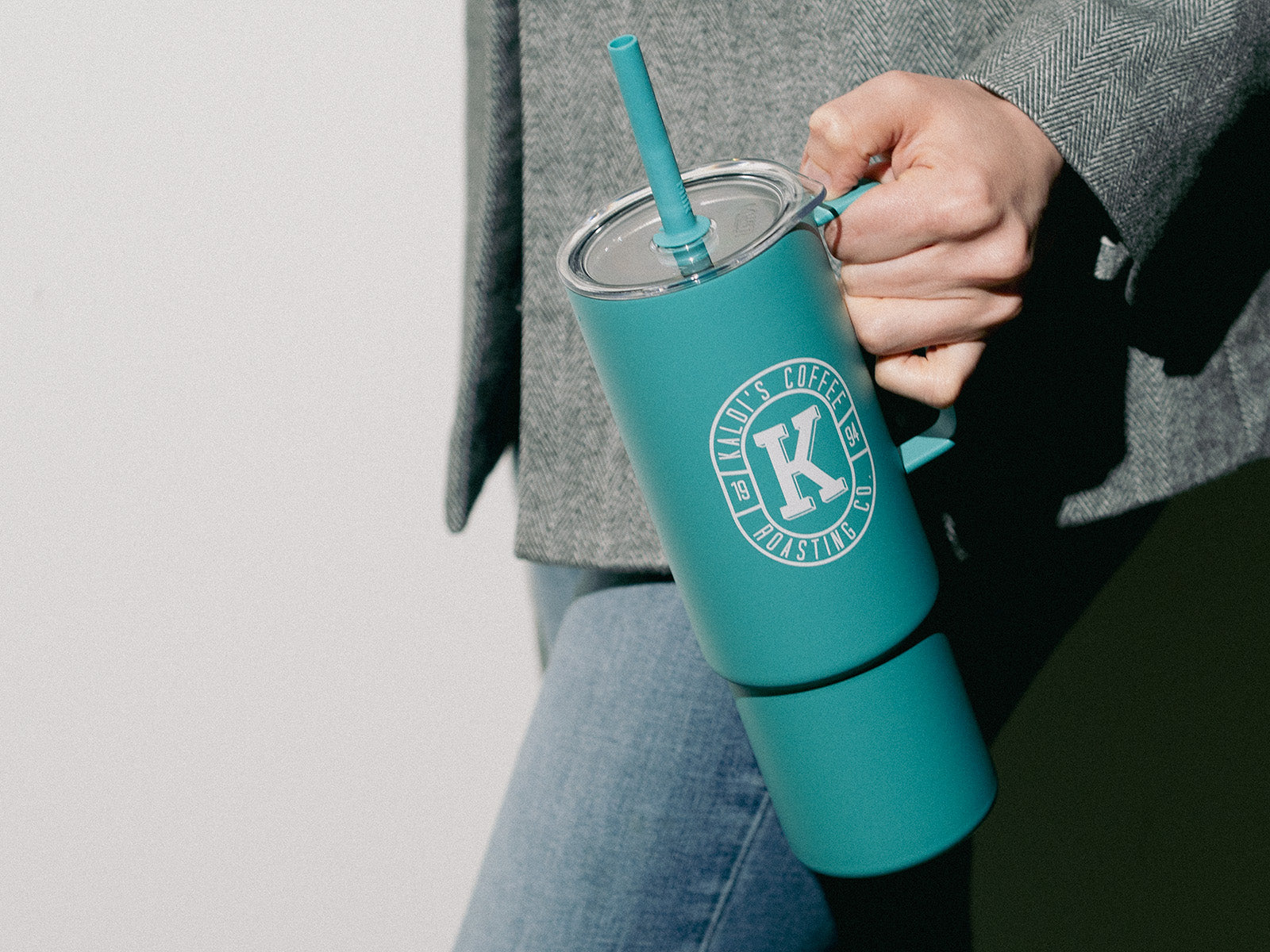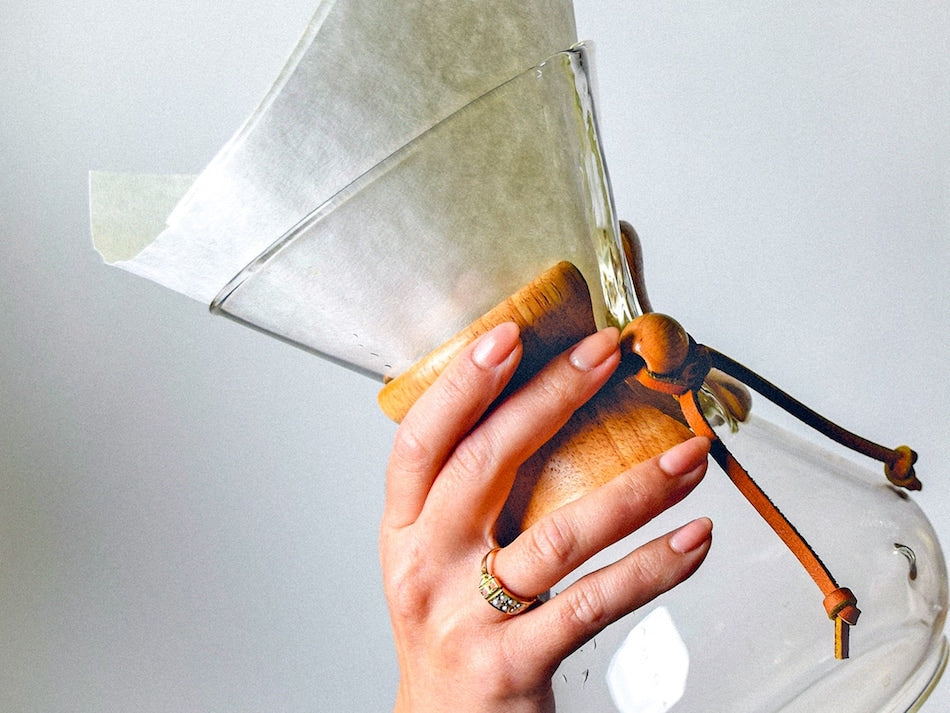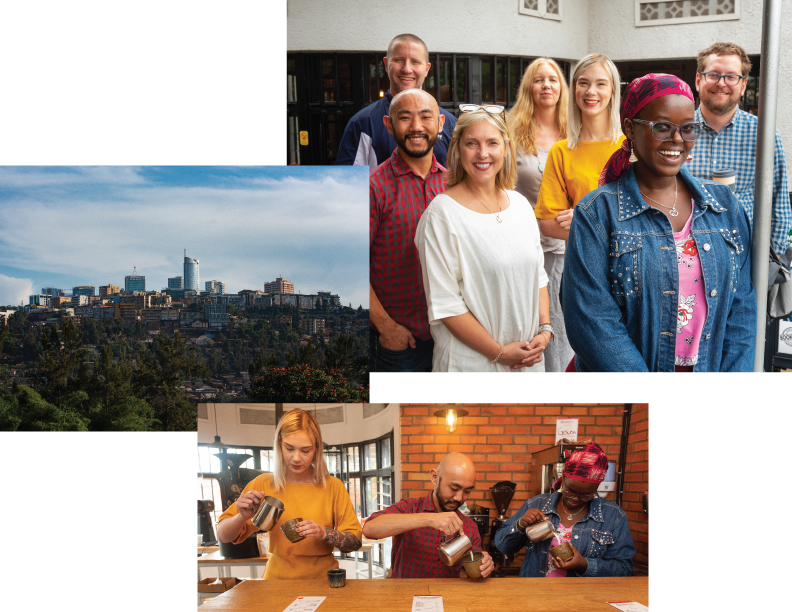
In November 2019, we were thrilled to visit Rwanda, a country about 1/7th the size of our home state Missouri, but with an outsized impact on specialty coffee and our own offerings in particular. During our week-long stay we had the privilege of touring the Abakundakawa & Sholi cooperatives, and met the individuals who are pioneering long-term specialty coffee growing practices in Rwanda. We walked with them in their fields, drying beds, and mills, and cupped their delicious coffee with them, sharing the transformative love of specialty coffee that brings us all together.
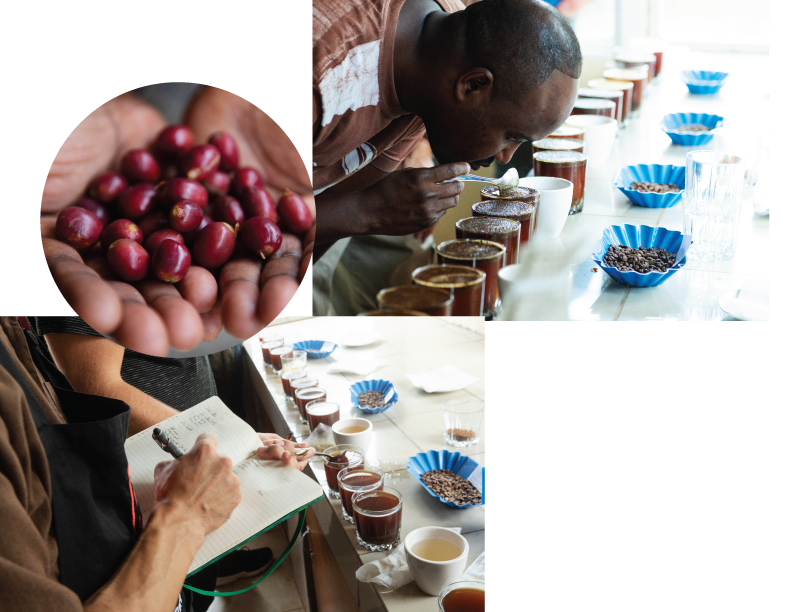
Scoring and cupping coffee
Abakundakawa
The first farm we visited was the collective of Abakundakawa, founded in 1999, and specializing in Fair Trade Organic coffee. It is also a uniquely women-owned and -operated practice, with 740 women tending to 3000 trees. The cherries produced here are all dry fermented after pulping, then washed, soaked, and hand sorted, followed by 2+ weeks of sun-drying and milling. When not picking or processing their coffee, the women of the co-op sew beautiful, colorful clothing for children, dresses, and shirts.
Earnings from their FTO products enabled the collective to build a washing station several years earlier to improve the quality of the coffee processing, and more recently, a hotel for tourists to the lush and beautiful Rwandan countryside--and prospective buyers. However, the co-op’s women still struggle with long travel times and water shortages. They hope that with increased attention on their quality offerings and developing relationships with buyers like Kaldi’s, they can continue to improve the lives of their families and communities, while continuing to produce exceptional coffees that are enjoyed the world over.
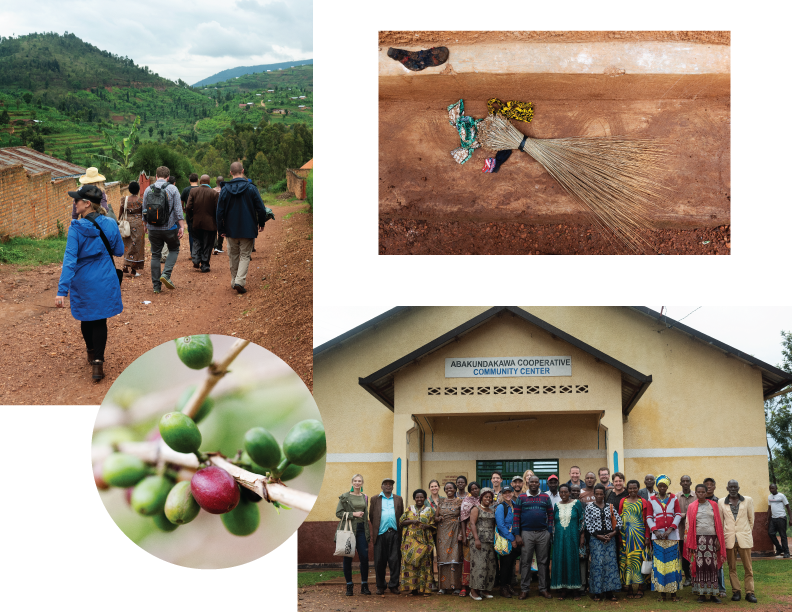
They hope that with increased attention on their quality offerings and developing relationships..., they can continue to improve the lives of their families and communities
Sholi
From Abakundakawa in the north of Rwanda, we journeyed on to Sholi, a Fair Trade- and Rainforest Alliance-certified co-op in the south. Here, the co-op workers--women and men-- supplement their income from cherry picking and processing with sewing, like their northern neighbors in Abakundakawa, as well as with beekeeping.
The community in Sholi includes a newly-built clinic, which provides treatment for malaria, HIV, and malnutrition, in addition to treating wounds and administering pregnancy check-ups. In an area where the nearest hospital is almost an hour away, this facility is a dire necessity, and its mission is directly linked to the strength of the specialty coffee industry driving the regional economy.
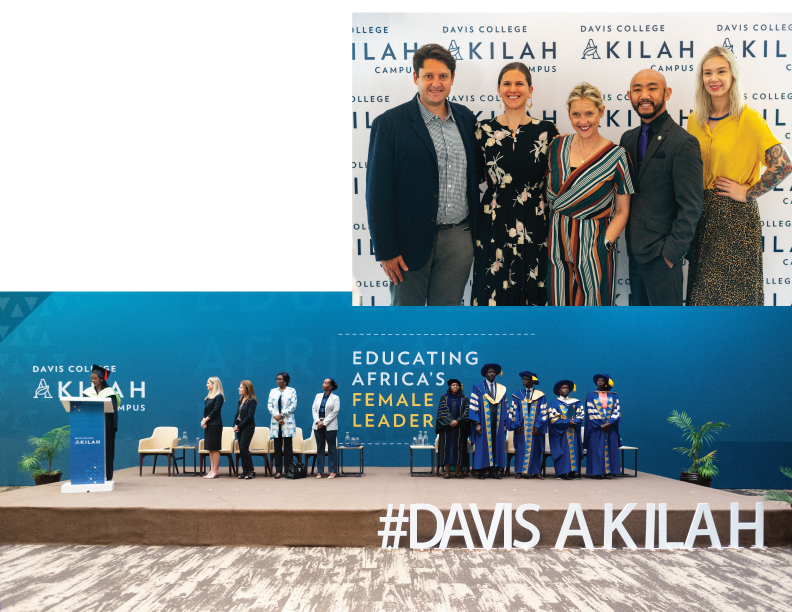
A Collective Vision with the Akilah Institute
We also had the pleasure of visiting and speaking to students of the Akilah Institute, a women’s college in the capital Kigali that is transforming the country’s professional landscape, from tech to clean energy to sustainability and agribusiness. At Akilah, we were privileged to attend a graduation ceremony, during which a collective vision was first born: a cafe and tea bar built in Kigali with assistance from Kaldi’s that would engage students from supply to retail, and incorporating internships in the U.S. The goal was--and still is-- to empower this new and vibrant generation of women leaders and entrepreneurs in Rwanda, and help them build a sustainable business that would further diversify and strengthen the specialty coffee industry that exports the vast majority of its product. Rwandan coffee--incredible, citrus-forward, delicious and high-quality--should also be enjoyed by Rwandans.
The goal was--and still is-- to empower this new and vibrant generation of women leaders and entrepreneurs in Rwanda, and help them build a sustainable business
One of our new Rwandan friends who co-envisioned the project, and we hope will partner with us when the pandemic allows us to move forward, is Smayah Uwajeneza, the 2018 Kenyan Aeropress Champion and a Specialty Coffee Association Lead Diversity Scholar (in the first picture on the right). Smayah is an award-winning barista and roaster at Kigali’s Question Coffee. We were thrilled to recently host her for a digital presentation shared live with our entire staff, to educate ourselves on the effects of COVID-19 in Rwanda, as well as to learn more about Rwandan coffee culture as a whole. Her story and experience, and the passion she has for coffee, are an inspiration for us and a brilliant example of Rwandan innovation and leadership in our industry.
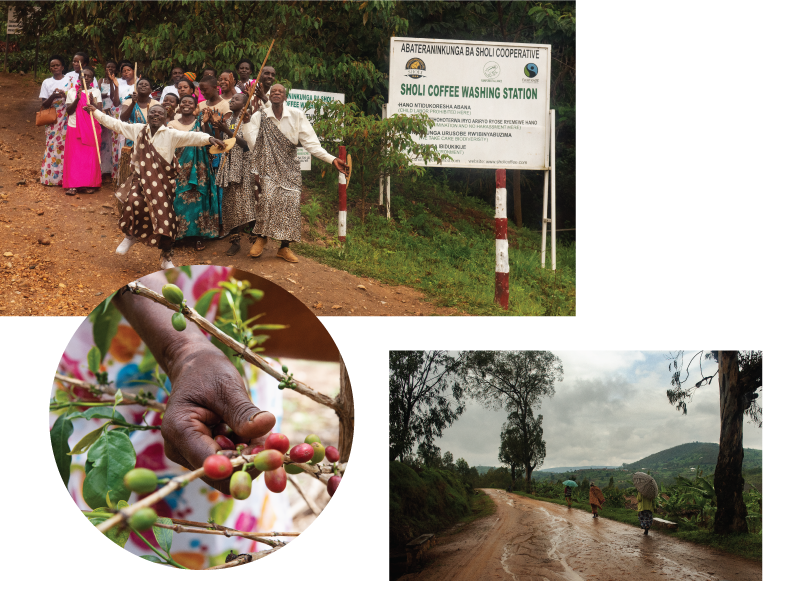
Growing Together
Our time in Rwanda afforded us a precious glimpse into the daily lives of our growers and processors in one of the most quickly developing regions of the specialty coffee industry. That time we spent there is all the more precious now in hindsight, through the lens of the necessary travel restrictions and lockdowns from the global epidemic. We are nonetheless ecstatic to be able to bring our guests and customers a small sliver of our Rwandan experience with our current and future lineup of Rwandan coffees.
When you buy our Rwanda Sholi, you are helping us continue our support of these incredible communities, particularly communities of women fighting to achieve economic stability for themselves and their country, and especially during a time of such widespread economic difficulty.
-
Read next:
SOURCING AND ROASTING COFFEE DURING COVID-19
Related Content:
-
The People of Kaldi's Coffee: Kiersten | Kaldi's Coffee Blog
-
A New Coffee Variety in El Salvador | Kaldi's Coffee Blog
- Sourcing Green Coffee | Education Page





